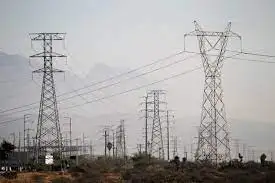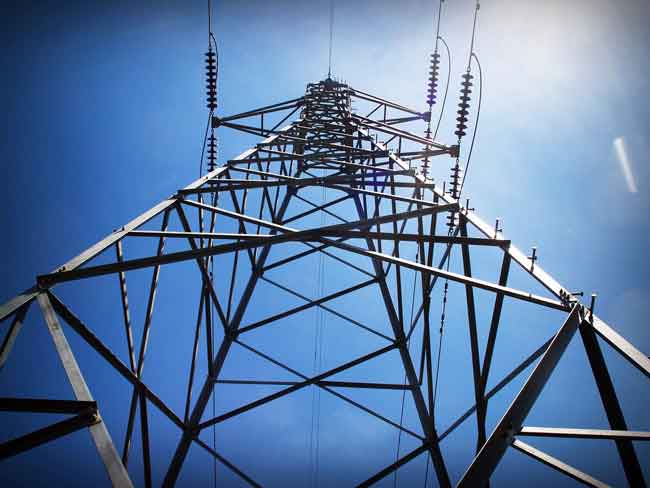46 per cent rate rise in 5 years predicted
TORONTO, ONTARIO - Ontarians will be zapped with a 46 per cent increase in home electricity costs over the next five years to pay for much-needed hydro system upgrades, warns the Liberal government.
To offset that sticker shock, Premier Dalton McGuintyÂ’s administration is offering a 10 per cent discount called the Ontario Clean Energy Benefit on hydro bills starting in January and lasting five years.
But in his fall economic statement, Finance Minister Dwight Duncan said electricity prices would still rise about 3.6 per cent annually on an average bill after inflation and the new measure the rise would have been 7.9 per cent without the new benefit.
“Every little bit helps during lean times,” he told the Legislature, saying rates should stabilize after five years once more expensive renewable energy sources replace heavily polluting coal-fired power plants.
It will go to about four million Ontario households and 400,000 farms and small businesses. Big power users will not receive the benefit.
The price break would save a homeowner using 800 kilowatt hours a month $153.60 annually, rising to $1,716 a year for a small business using 10,000 kWh monthly and $2,052 annually on a farm consuming 12,000 kWh a month.
Duncan conceded the LiberalsÂ’ green energy policies account for 56 per cent of the skyrocketing prices with expansion of nuclear and natural gas power plants the reason for the remaining 44 per cent.
“We are all paying for decades of neglect by governments of all political stripes. We had to invest. These were necessary, unavoidable costs.”
Taking a pre-emptive shot at opposition critics as an election looms next October, Duncan added: “Any politician who suggests, implies or tries to tell people that the price of electricity is going to go down over the next five years is simply not telling the truth.”
Progressive Conservative Leader Tim Hudak dismissed the price break, as “so-called benefit” from a desperate government that is “out of touch, out of gas, and increasingly, out of time.”
But Hudak would not scrap the discount. Nor could he say how much hydro rates would increase if he is elected in next fallÂ’s provincial vote.
“I’m not going to be Dalton McGuinty and make this stuff up on the fly like his scheme to try to buy votes before an election campaign,” the Tory leader said.
Duncan also revealed Ontario taxpayers are receiving a $1 billion windfall from the province’s Teranet land registry system — under a secret deal done without a public tender.
With the 10 per cent break on electricity bills to cost $1.1 billion in its first full year, Queen’s Park will raise nearly that amount in an “upfront” payment to extend Teranet’s exclusive licences.
The money is to pay down the government’s debt of $149.6 billion — up from $124.2 billion in 2003-04 when the Liberals were first elected — and reduce annual interest costs by $50 million.
Teranet, owned by Borealis Infrastructure, will provide electronic land registration and writs services for another 50 years beyond the original 2017 date of the contract.
From that date until 2067, the government will receive at least $50 million in annual royalty payments, added Duncan, who projected a deficit of $18.7 billion this fiscal year.
ThatÂ’s down $1 billion from a previous forecast because of stronger economic growth boosting expected revenues by almost $800 million to $107.7 billion.
Despite his boast that 75 per cent of jobs lost in the recession have been regained, revenue from personal income taxes is expected to be $1.13 billion below this yearÂ’s forecast.
With a lack of detail on how the Teranet deal was put together, even though it could have been put up for bids at the 2017 expiry, NDP Leader Andrea Horwath called it a “short-term... cash grab.”
Horwath compared it to the “fire sale” of the Hwy 407 when the previous Progressive Conservative government sold off the toll highway before the 1999 election.
Duncan countered that the Liberals decided the time was right to strike a deal in advance, and that it had favourable opinions on the fairness of the deal for taxpayers from financial advisors.
The treasurer also defended the need to borrow money to finance the electricity rate cut, noting governments used loans to improve hospitals, highways, and bridges during the recession.
“We believe this is the right way to do it,” he told reporters. “We think providing this clean energy benefit, as we move towards a rebuilt energy system with more clean energy, is an appropriate priority.”
Satinder Chera, Ontario vice-president of the Canadian Federation of Independent Business, hailed the electricity price relief as welcome help for the “province’s job-creators.”
Related News

California Gets $500M to Upgrade Power Grid
CALIFORNIA - California has recently been awarded over $500 million in federal funds to significantly improve and modernize its power grid. This substantial investment marks a pivotal step in addressing the state’s ongoing energy challenges, enhancing grid resilience, and supporting its ambitious climate goals. The funding, announced by federal and state officials, is set to bolster California’s efforts to upgrade its electrical infrastructure, integrate renewable energy sources, and ensure a more reliable and sustainable energy system for its residents.
California's power grid has faced numerous challenges in recent years, including extreme weather events, high energy demand, and an increasing reliance…




